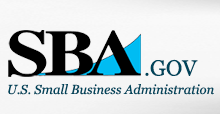Is your Business Really Prepared for the ACA?
Politics aside, what do you really need to know about ACA? Some like it; some hate it. There’s seemingly “good news” for the uninsured, yet “bad news” for corporate America. Politicians stump about it, news media “chat” about it nonstop, everywhere you turn there’s something about Obamacare (Affordable Care Act – ACA). With all of the attention, it may be hard to get to the facts and harder to know what to expect, and how one might need to respond. So consider this the “short list” of the important elements of the ACA and what you may need to do about it.
Health Benefit Exchanges – We’ve all heard about the creation of Health Insurance Exchanges, but the focal point of these exchanges for employers deals with the definition of “small group.” The Small Group Market is defined as employers with 100 or fewer employees in the preceding year. However the Exchanges are run by the states that have the authority to define the small group market at 50 or fewer employees in the preceding year.
So what do you need to do? Be aware of how your state defines the small group market because it can have a significant impact on your ability to access the Exchange.
Play or Pay Tax – Larger employers will be potentially subject to the play or pay tax if they do not offer coverage and certain criteria are met, or if they offer coverage and certain criteria are met. Employers will be considered “large employers” if they have an average of 50 or more employees in the preceding year. Employees include “full time equivalent” employees, which are calculated on a monthly basis. The taxes (penalties) for being out of compliance are assessable on a monthly basis.
So what do you need to do? It’s imperative to understand BOTH the way full-time employees are calculated, as well as understand the way coverage is deemed suitable (and thus not subject to possible penalties).
Small Business Tax Credit – Only employers that have 25 or fewer full-time employees and meet other eligibility criteria requirements can claim the tax credit. The average annual wages for employers in this category must be $50,000 or less AND the employer must have a contribution arrangement in effect that satisfies the IRS requirement.
So what do you need to do? If you’re potentially in this arena, you need to understand the calculation of full-time employees as well as the salary calculation. You’ll also need to work with an accountant or tax professional who can help with IRS form 8941 in order to claim the credit.
Medical Loss Ratio – Depending on how the Small Group market is defined in your state, a group may be subject to either an 80% or 85% medical loss ratio standard. This will have an impact on the chances enrollees have of receiving a rebate: 85% for the Large Group Market and 80% for the small group Market. The medical loss ratio is a spending requirement imposed on carriers providing coverage. Rebates are only required if the carrier does not meet the applicable medical loss ratio standard.
So what do you need to know? This element will have an indirect impact on employers because it is directed towards insurance carriers. Many carriers will have to decide if they are going to continue to offer plans in certain markets or if it no longer makes financial sense to do so. If carriers drop out or pull back offerings, the result will be potentially increased pricing for those who remain, and/or driving more people to the exchanges.
Record Keeping Requirements for Everyone – regardless of the size of the company, the ACA is requiring all employers to keep records of their employees, records that are to include household incomes (yes, even for the spouse not employed by the firm), and if they have enrolled in an exchange. The purpose according to ACA is to determine possible “cost-sharing” for those employees who are at or near the poverty level for an individual and/or family (hence why they are requiring family income).
So what do you need to know? Some might think, well, I don’t have any employees at or near the poverty line…however that does not mean you are not required to keep records. Everyone is required. On the other end of the spectrum there may be a Cadillac tax coming down the road in 2017 assessed against those who have plans that are “too rich.”
Other questions employers are asking include, “I’ve heard about grandfathering plans, can I (should I) do that and if so, how?” “Should exchanges be a part of my company’s offering?” As the ACA continues to unfold, there will likely be additional elements of it that employers will be forced to address. The best advice we can offer to employers is: make sure you are working with a Financial Professional who understands the ACA and can help you navigate its impact specific to your firm. Have a plan, and get out ahead of it as much as possible.

P. Allen Haney President, The Haney Company
Mr. P. Allen Haney is a Strategic Advisor to the Government Technology & Services Coalition. He is also a trusted advisor to business owners and nonprofit executives, Allen Haney is best known for solving problems. His consul on employee benefits, executive compensation, and retirement planning routinely vitalizes the health and sustainability of closely held businesses and associations.
He is most appreciated for his all-inclusive, uncompromising commitment to expand client capacity by uncovering risks and opportunities hidden in blind spots. Read more about Mr. Haney here.


 If you’re a small business owner interested in making the federal government one of your next customers, you can benefit greatly from certifying your business first. Many government agencies require that a certain percentage of its work is set aside for small businesses (and woman-owned, veteran-owned and more), so certifying your business can help you successfully compete for government contracts. These resources can help:
If you’re a small business owner interested in making the federal government one of your next customers, you can benefit greatly from certifying your business first. Many government agencies require that a certain percentage of its work is set aside for small businesses (and woman-owned, veteran-owned and more), so certifying your business can help you successfully compete for government contracts. These resources can help: